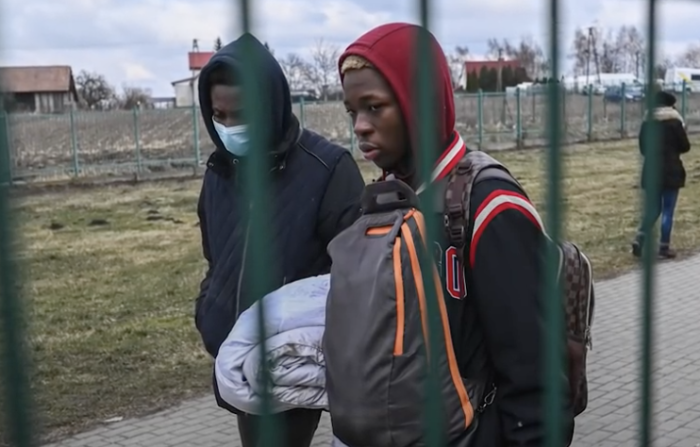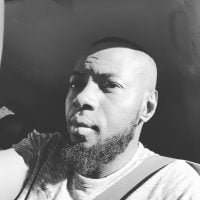The ongoing conflict between Russia and Ukraine is more than a trending topic on social media.
Lives and properties are being lost to the cruelty of man’s own creation, and united the world stands, calling for peace and an end to the violence.
However, where do we draw the line between humanism and racism, fuelled by racial bias and discrimination against Black people and non-whites fleeing Ukraine?
As individual concepts, war and racism require little or no introduction. We have the privilege of scrolling through ancient and modern history with the click of a button. Down that rabbit hole, what you will find may or may not shock you, depending on the values which dictate the rhythm of your beating heart.
But let me paint a quick picture to save you time: it is a sickening stream of injustices scattered across time and place, glorifying our greed, thirst for blood, and lack of respect for diversity and humanity.
The Russia-Ukraine war—the latest episode in a long list of 21st century conflicts—shows just how these two evils can coexist and cripple the physical and mental well-being of victims.
Reports say over 2.5 million people have fled war-torn Ukraine into neighbouring European countries such as Poland, Hungary, Slovakia, and others.
That figure includes Africans, Indians, and other non-whites, most of whom are students in Ukrainian universities.
So, how did these people flee the ongoing war?
Gunshots and bombs are exploding everywhere. People are fleeing their homes in Kyiv, Irpin, and other parts of Ukraine, running for their dear lives. Everyone who is alive or not badly injured is trying to reach the closest border to seek refuge.
Depending on where they are and which border they are trying to reach, it takes a few days to get there. One option is to go by car, but that is futile because of the long car queues. People resort to walking for hours in freezing conditions, hoping to reach the border safely and quickly.
It is a race against time, a matter of life and death.
After 12 hours of walking (some people walked longer), people reach a shelter and are told to wait for a bus to take them to the border, which is still eight hours away by foot.
Exhausted and traumatised by the walking, people try to find rest.
The bus arrives, and suddenly, people are no longer just people: they are white people and Black people and are ruthlessly separated, some at gunpoint.
White people get onto the bus, expediting their passage to safety and refuge, while others are told, “Only Ukrainians, that’s all; if you are black, you should walk,” as Jessica Orakpko, a Nigerian medical student who fled Ukraine, recounts for BBC News.
Another option is going by train.
People pour into the train station in their thousands, eager to escape the ongoing nightmare. People, along with their friends and family who have made the treacherous journey together and cannot afford to be separated, slog through a sea of bodies to buy train tickets.
At the ticket box, people are no longer just people: they are white people and black people.
White people have the freedom to purchase as many tickets as they want, but “they are limiting the number of tickets Black people can get,” writes Shingirai Mjanga, a Zimbabwean medical student who fled Ukraine for Glamour Magazine.
The train arrives, and again, people are no longer just people: they are men and women and children.
The order is women and children first. But only white women and children are allowed on the train, expediting their passage to safety and refuge, while African women—some pregnant—and children are not allowed to board that train, according to Alexander Somto Orah, another Nigerian student who fled Ukraine, speaking to Sky News.
The UN has acknowledged claims of racism treatment by border guards of refugees trying to flee the Russian invasion in Ukraine.
Nigerian student Alexander Somto Orah shares his experience with Sky News. https://t.co/X3flQUBL0r
? Sky 501, Virgin 602, Freeview 233 and YouTube pic.twitter.com/oudYsksDWI
— Sky News (@SkyNews) March 2, 2022
At the border, regardless of how they got there and how long it took, people are no longer just people: they are white people, black people, and other non-white people, separated by two queues—a pedestrian queue and a car queue.
White people, all in the car queue, cross the border with little fuss, while black people and other non-whites, even those who somehow got a car and spent two days trying to reach the front of a miles-long car queue, are ordered to join the pedestrian queue that is “just as long, but it was just non-white Ukrainian people,” British citizen and medical student who fled Ukraine, Korinne Sky, says on Good Morning Britain.
Outside the war zone, reporters and journalists are choosing their words carefully on the news, condemning Russia’s invasion of Ukraine.
Because, apparently, the people being killed are no longer just people: these are “European people with blue eyes and blonde hair,” white Christians, and “not obviously refugees trying to get away from areas in the Middle East or North Africa.”
These are just a few stories from African students and Black people who endured racial discrimination as they fled Ukraine, along with hundreds of thousands of people.
It turns out people are not just people, even in a time of war.
As shocking as this may appear, the blatant racism and discrimination experienced by Black and Brown people fleeing the war don’t come as a surprise, and neither will it be the last episode of the depressing racial inequality series experienced by people of color all over the world.
Right now, a person of color is being racially abused or discriminated against somewhere in the world.
Will racism and discrimination ever end?
A better question, perhaps, is: what are we doing to rid our world and ourselves of this cancer, which is destroying the root of our humanity and searing our conscience?
When will we just see humans as they are, as people who deserve respect, support, and recognition, regardless of the color of their skin?
Racism in all its forms is disgusting and should be condemned, and anyone who appreciates and values the ideology of humanism should defend this cause because Black and Brown lives also matter in a time of war—every time and everywhere.
Humanism should not be a function of class, color, or creed, but a function of our collective uniqueness as humans, based on compassion, equality, and love.
We can stand for peace, justice, and equality at the same time. Anything less should be considered hypocritical.
 Share on bsky
Share on bsky






Read 41 comments and reply